Time Management Tips
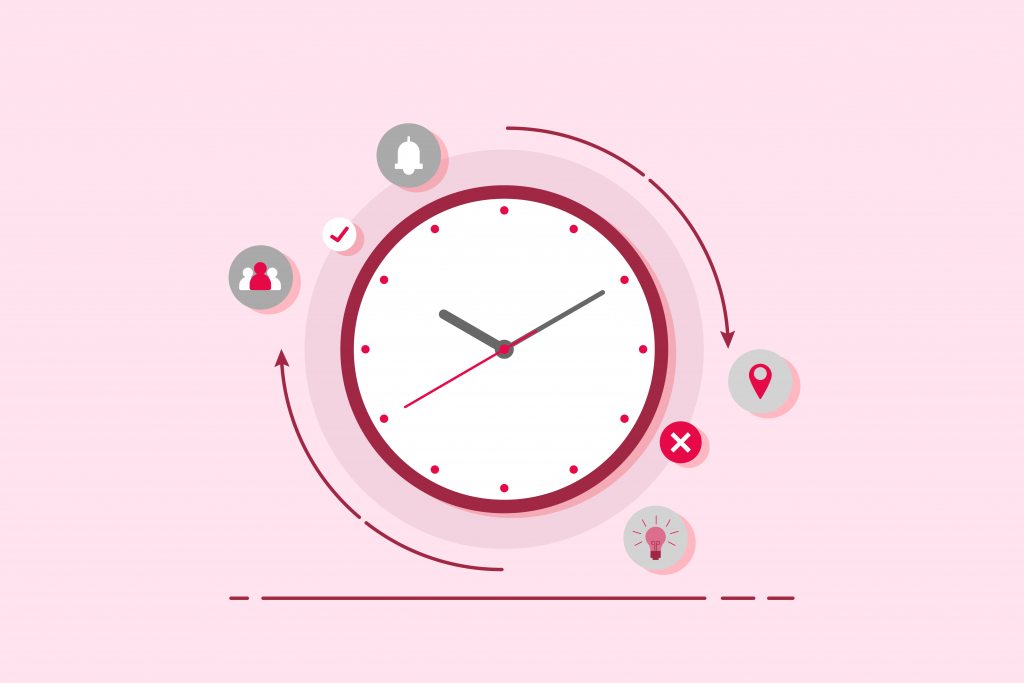
Working from home has its benefits, but it’s vital to learn to manage your time effectively. From distractions that steal your focus to fatigue that saps your energy and overwhelm that leaves you feeling you have no place to start, there are tons of time sucks that can make it tough to properly manage your working hours.
The good news is that if you follow the time management tips below, you’ll be able to accomplish your work tasks and save some time for yourself.
Prioritize Important Tasks
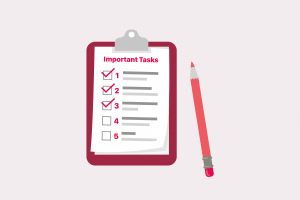 Proper time management begins with knowing your priorities. Some important tasks may need to be taken care of first thing in the morning. Others – such as returning phone calls or answering emails – may be urgent but not important.
Proper time management begins with knowing your priorities. Some important tasks may need to be taken care of first thing in the morning. Others – such as returning phone calls or answering emails – may be urgent but not important.
Make sure you’re not letting busywork like phone calls and emails redirect your focus from more important tasks. Prioritize your actual work to avoid burnout, and get it done before you concentrate on more trivial tasks.
Complete Related Tasks Together
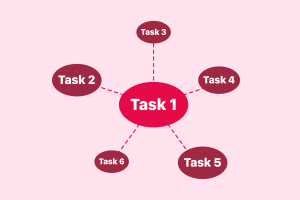 Different tasks require different “gears” – or modes of thinking. Sometimes, switching gears can put you in a whole different headspace, which can kill your focus for another type of task. That’s why you should do all the tasks that fit into a specific “gear” at once to manage time well.
Different tasks require different “gears” – or modes of thinking. Sometimes, switching gears can put you in a whole different headspace, which can kill your focus for another type of task. That’s why you should do all the tasks that fit into a specific “gear” at once to manage time well.
If you have several different related tasks, complete these tasks together. For instance, if you have to answer emails and return phone calls, set a specific time to do those things together, preferably after completing more important tasks first.
Another example would be reports and presentations. It’s quite common to have to put together a presentation on a report you’ve done. So if you know you’ll need to do both, why not do them at the same time to avoid doubling up your efforts?
As a bonus, completing tasks can give you a bit of a mental boost from a sense of accomplishment. Doing what you can to complete a series of related tasks can therefore lift your mood and increase your overall productivity.
Take Regular Built-In Breaks
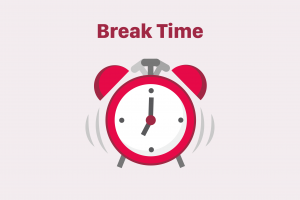 This may seem counterintuitive, but taking regularly scheduled breaks is vital to proper time management. All of us only have about four or five hours of focus per day. This means your ability to do deep work may be limited to about half of an actual eight-hour workday.
This may seem counterintuitive, but taking regularly scheduled breaks is vital to proper time management. All of us only have about four or five hours of focus per day. This means your ability to do deep work may be limited to about half of an actual eight-hour workday.
This is why you should ensure you’re scheduling breaks into your workday – especially if you’re required to be on the clock for eight hours. Cognitive breaks help you maintain focus and not drift away while you’re trying to complete tasks. And screen breaks protect your eyes from strain, so you won’t have headaches and blurred vision distracting you.
Have a Set Schedule – And Stick to It
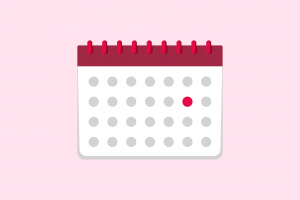 Sometimes, remote workers have their schedules set for them, whether you’re on a virtual call center shift or just have set meeting times all day. However, others in the work-from-home crowd don’t have anyone telling them when to work.
Sometimes, remote workers have their schedules set for them, whether you’re on a virtual call center shift or just have set meeting times all day. However, others in the work-from-home crowd don’t have anyone telling them when to work.
If this describes you, then you’ll need to set a schedule and get into the habit of obeying it. Having consistent working hours can help put your unconscious in the right mindset to maintain focus and be more productive. Sticking to a schedule can also help you better plan kids’ activities, exercise, and other non-work tasks.
It can also help to have a less-rigid schedule outside of your working hours. Maintaining a consistent sleep schedule, eating meals at roughly the same time every day, and relaxing before bed with a simple routine can help keep your overall day better on track.
Before you start the workday, you may want to indulge in a morning routine that helps you wake up and get in the mind space needed for productivity.
Minimize Distractions
 This is one of our most important time management tips because one of the worst time sucks is distractions. Whether it’s your buzzing phone, the TV in the background, or kids coming in and out, distractions can take a task that might otherwise require a half hour to complete and turn it into an all-day affair.
This is one of our most important time management tips because one of the worst time sucks is distractions. Whether it’s your buzzing phone, the TV in the background, or kids coming in and out, distractions can take a task that might otherwise require a half hour to complete and turn it into an all-day affair.
This is why you have to take measures to minimize distractions. Put the personal devices away from you. Have a set office or designated workspace that doesn’t have a TV or other distractions. Insist kids leave you alone when you’re in your office or designated workspace. Do whatever you can to prevent your focus from being interrupted.
Don’t Multitask
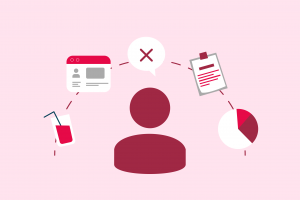 Aside from accomplishing related tasks together, you should steer clear of multitasking. While it might seem like common sense to do several things at once, performing multiple tasks at once actually makes you less efficient because splitting your focus between tasks lowers your proficiency in both of them.
Aside from accomplishing related tasks together, you should steer clear of multitasking. While it might seem like common sense to do several things at once, performing multiple tasks at once actually makes you less efficient because splitting your focus between tasks lowers your proficiency in both of them.
This means no answering emails while helping the kids with their homework. No working on your quarterly report while attending important meetings. You’re not doing two things at once, but technically switching between tasks and still doing one thing at a time.
Splitting your focus doesn’t just make you take longer to complete each task, but it also makes you do a worse job on them. This is why you should always do one thing at a time.
Track Your Current Time Expenditure
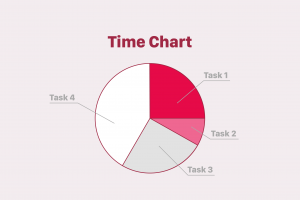 Performing what’s called a “time audit” can go a long way to helping you improve your time management. During your time audit, you’ll keep a close eye on how you’re currently managing your time.
Performing what’s called a “time audit” can go a long way to helping you improve your time management. During your time audit, you’ll keep a close eye on how you’re currently managing your time.
Don’t do anything to change your behavior yet. Instead, keep a close watch on the clock and how long it takes you to do what you habitually do during the day. Answer questions like, “How long is it taking me to complete each task? How much time am I wasting on distractions? How much time do I use to accomplish low-priority tasks?”
Limit Time Spent on Each Task
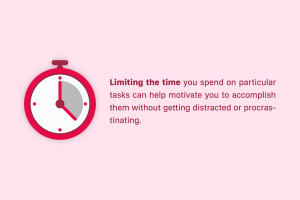 Limiting the time you spend on particular tasks can help motivate you to accomplish them without getting distracted or procrastinating. For example, if you’ve got to write a piece for your company blog, set a reasonable amount of time to get it done.
Limiting the time you spend on particular tasks can help motivate you to accomplish them without getting distracted or procrastinating. For example, if you’ve got to write a piece for your company blog, set a reasonable amount of time to get it done.
The best way to set the limit is to decide what time of day you’ll be finished with a certain task. Don’t abandon the task if it’s not completed by the set time. Instead, try to push yourself into the habit of making the time. If you continue this behavior, it can eventually become ingrained.
Reward Yourself with Breaks When Completing a Task
 To improve your time management skills, set small breaks or “buffer” times between tasks. These breaks not only act as a reward for accomplishing tasks. They can also act as a motivator to keep you within your set time limits.
To improve your time management skills, set small breaks or “buffer” times between tasks. These breaks not only act as a reward for accomplishing tasks. They can also act as a motivator to keep you within your set time limits.
For instance, if you get distracted and take longer to complete a task than you should have, it eats into your buffer time and takes away from your break. This can help push you to stick to the time limits you set for each task, as well as give you a cognitive and visual break between tasks.
Don’t Let Yourself be Overwhelmed with Busywork
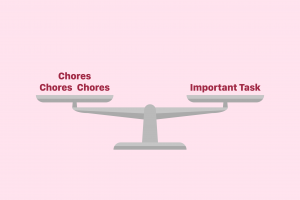 This goes back to prioritizing important tasks but takes it a step further. Any busywork that can be eliminated should be eliminated. If this means turning down unimportant meetings, turn them down. If it means asking coworkers not to send you trivial emails, make this request. And don’t respond to such emails if your request is ignored.
This goes back to prioritizing important tasks but takes it a step further. Any busywork that can be eliminated should be eliminated. If this means turning down unimportant meetings, turn them down. If it means asking coworkers not to send you trivial emails, make this request. And don’t respond to such emails if your request is ignored.
Eliminating unnecessary busywork to improve efficiency and time management may mean learning to say “no” to tasks that are frivolous, time-wasting, or don’t fit into your job description.
Declutter and Organize Your Space
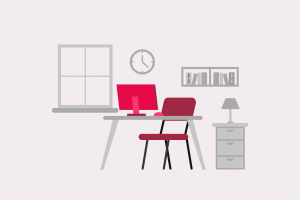 Keeping an organized space is actually a great way to manage your time. When you have an organized office space, you eliminate the distractions that come along with clutter.
Keeping an organized space is actually a great way to manage your time. When you have an organized office space, you eliminate the distractions that come along with clutter.
More than this, you can increase your efficiency by not wasting potentially hours a day looking for misplaced items. Get rid of the clutter on your desk and have a specific place where each item you need throughout the workday can go. That way, you will be able to grab exactly what you need exactly when you need it.
Don’t Neglect Your Sleep
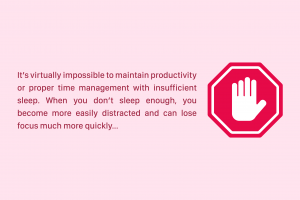 It’s virtually impossible to maintain productivity or proper time management with insufficient sleep. When you don’t sleep enough, you become more easily distracted and can lose focus much more quickly. This lack of sleep reduces your all-around efficiency at completing tasks and can kill your productivity.
It’s virtually impossible to maintain productivity or proper time management with insufficient sleep. When you don’t sleep enough, you become more easily distracted and can lose focus much more quickly. This lack of sleep reduces your all-around efficiency at completing tasks and can kill your productivity.
This is why prioritizing your sleep is so important. To improve sleep, have a set sleep schedule, and stick to it every night. Also, optimize your sleeping environment with the best mattress and comfortable bedding, and make sure you’re not working in the hour before bedtime. If you can, shut down all devices at least an hour before bed.
See also our study on how busy schedules affect Americans’ sleep.
Schedule Planned Exercise
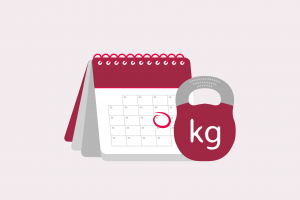 Regular exercise is also key to a good night’s sleep and improved focus during the workday. Exercise increases blood flow throughout the body, including to the brain and within the brain itself. Plus, regular exercise can drastically improve focus and cognitive function for a more productive and efficient day.
Regular exercise is also key to a good night’s sleep and improved focus during the workday. Exercise increases blood flow throughout the body, including to the brain and within the brain itself. Plus, regular exercise can drastically improve focus and cognitive function for a more productive and efficient day.
So even if you’re busy, set aside at least 20 minutes for exercise.
Use Screen Breaks for Chores and Other Non-Work Tasks
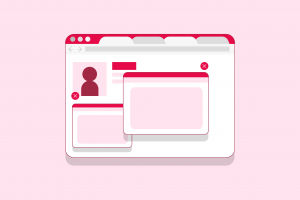 You have to take screen breaks to protect your vision. But no one said you couldn’t use those screen breaks efficiently. A great use of your break time is doing chores that don’t require you to look at a screen or think too much.
You have to take screen breaks to protect your vision. But no one said you couldn’t use those screen breaks efficiently. A great use of your break time is doing chores that don’t require you to look at a screen or think too much.
Vacuum the floors. Do the dishes. Go grocery shopping. Finish up the laundry. Using the quick breaks between tasks to complete chores and errands can help free up your evenings and weekends for other things.
Streamline Your Mornings
 The first few hours after you wake up are usually when you hit your peak sharpness and energy levels. While you may experience second winds in the afternoon or evening, you’re at your best between one and four hours after you wake up.
The first few hours after you wake up are usually when you hit your peak sharpness and energy levels. While you may experience second winds in the afternoon or evening, you’re at your best between one and four hours after you wake up.
This means mornings shouldn’t be wasted. Accomplish the tasks that are highest on your priority list in the morning. You can also save mornings for tasks that require greater focus or deeper thought.
Prepare for the Next Day Before Bed
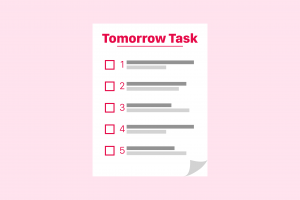 You’ll be in a much better headspace if you don’t have to spend mornings sprinting around getting ready for the day. That means you should get as much of your morning routine done before bedtime the previous night. See our proposed bedtime timeline.
You’ll be in a much better headspace if you don’t have to spend mornings sprinting around getting ready for the day. That means you should get as much of your morning routine done before bedtime the previous night. See our proposed bedtime timeline.
Make the kids’ lunches. Pick out everyone’s outfits. And do any other pre-work or pre-school task you can. That way, you can up your morning time management game and not feel quite so hectic trying to get everyone out the door before you start your remote workday. Instead, your morning routine can focus on waking up and easing your way into the day’s tasks.
Don’t Overschedule
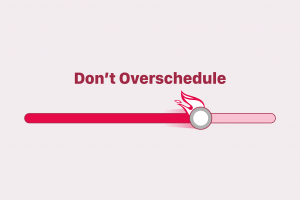 It goes without saying that overscheduling yourself can do serious damage to your time management ability. So try to offload as many things as you can during your workday to avoid overworking. Some of this comes back around to learning the subtle art of saying “no.”
It goes without saying that overscheduling yourself can do serious damage to your time management ability. So try to offload as many things as you can during your workday to avoid overworking. Some of this comes back around to learning the subtle art of saying “no.”
Don’t schedule back-to-back meetings. Try to avoid timing kids’ activities during working hours. Don’t take on tasks that aren’t part of your job description or that aren’t necessary for your job function. Say “no” to projects or demands that have more to do with “office culture” than they do productivity. Just say “no” to any and all unnecessary time sucks that you can.
Set Goals for the Day – And Stop Once They’re Accomplished
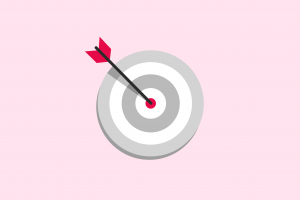 You might think it’s harder to finish your daily goals than it is to stop after you accomplish them, but for many, it’s actually the opposite. Many of us may be tempted to keep right on working after we finish up our tasks for the day, especially if it took less time than we anticipated or allotted to do so.
You might think it’s harder to finish your daily goals than it is to stop after you accomplish them, but for many, it’s actually the opposite. Many of us may be tempted to keep right on working after we finish up our tasks for the day, especially if it took less time than we anticipated or allotted to do so.
However, this can quickly lead to work creep that starts to eat away at your downtime if you let it. And there’s no better way to wind up burning out at your job than consistently overdoing it. For this reason, stop working when you’ve accomplished your daily goals, even if you finish up a little early.
Stop Work When Work Hours Are Over
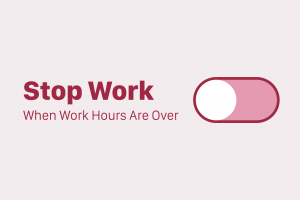 In the same vein, you also need to stop work at your regularly scheduled stop time. This might mean leaving an unfinished task for the morning, but unless you’ve got an urgent deadline, splitting a task into two workdays won’t hurt.
In the same vein, you also need to stop work at your regularly scheduled stop time. This might mean leaving an unfinished task for the morning, but unless you’ve got an urgent deadline, splitting a task into two workdays won’t hurt.
Once again, this time management tip helps you avoid work creep that interferes with your downtime and your work-life balance. Time management isn’t just for increasing productivity. It’s also there to ensure you get to have a life outside of your remote job.
Prioritize Downtime
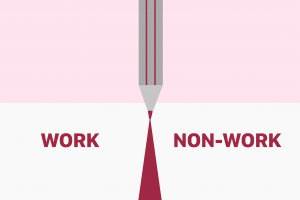 Remote jobs especially have a reputation for bleeding out of your working hours and into your off hours. This is why time management is just as important during your downtime as it is during your work time.
Remote jobs especially have a reputation for bleeding out of your working hours and into your off hours. This is why time management is just as important during your downtime as it is during your work time.
During your non-work hours, don’t work. This might sound simple enough, but it can be a whole lot harder in practice. It can be quite difficult to let emails sit until the morning or ignore work calls at 11:00 at night.
However, it’s vital to set boundaries between your work and non-work hours. Otherwise, you could find yourself on the clock all the time.
Consider Time Management Apps
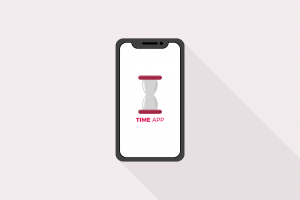 There are lots of time management apps out there that can do some of the work of scheduling and prioritize for you. Whether it’s a simple calendar app or a full-blown task management program, these apps help you with your time management goals through a process called cognitive offloading.
There are lots of time management apps out there that can do some of the work of scheduling and prioritize for you. Whether it’s a simple calendar app or a full-blown task management program, these apps help you with your time management goals through a process called cognitive offloading.
Cognitive offloading is when you take something out of your memory and put it into a physical or digital medium so that you don’t have to keep it in your brain anymore. Examples of this include everything from grocery lists to calendar events and even sticky notes.
Time management apps allow you to take your cognitive offloading to the next level by keeping up with schedules, tasks, timelines, and more. Don’t forget to schedule reminders for your breaks!
Automate and Delegate
 Speaking of offloading, one of the best time management tricks in the book is offloading tasks. If you have coding skills, you might try automating repeated tasks so that you don’t have to deal with them anymore. Even if you can’t code, there are programs out there that can automate some tasks for you.
Speaking of offloading, one of the best time management tricks in the book is offloading tasks. If you have coding skills, you might try automating repeated tasks so that you don’t have to deal with them anymore. Even if you can’t code, there are programs out there that can automate some tasks for you.
Also, consider delegating tasks. Of course, don’t dump tasks on equally frazzled coworkers. This won’t win you any popularity awards around the office. But consider delegating low-priority tasks to an intern or office assistant. You might also consider asking your company to hire you a virtual assistant for a few hours a week to take some of the pressure off yourself.
Frequently Asked Questions
How can I prioritize tasks for maximum productivity?
Prioritizing tasks by order of importance is a great way to improve your time management. For instance, you can prioritize getting job-related tasks done before more trivial tasks like answering emails or returning calls. You can also prioritize by the due date. If you have two tasks around the same order of importance, focus on the more urgent one first.
Completing related tasks together is another fantastic time management trick. For instance, if you've got to answer emails and return calls, take care of those two tasks together to save time.
What is the best way to eliminate distractions?
There are several ways to minimize distractions during your working hours. One of the best ways to reduce distractions is to choose a designated workspace and stick with it. A full home office with a door is best to physically block distractions like spouses, kids, TVs, and the like.
However, if you don't have that option, choose a designated space and communicate to family members that you're off limits when in that space.
Putting your phone away from you is another great way to ditch the distractions. Even if you don't look at it, even just hearing your phone can be enough to steal your focus. So turning it off or leaving it in another room are the best ways to eliminate the temptation to look at it.
How often should I take breaks?
There's no hard and fast rule for how often you should take breaks. It's a good idea to schedule buffer times between tasks so that you can switch gears and maybe snag a quick cup of coffee.
You'll also need to follow the 20/20/20 rule to protect your vision. When looking at screens, look away from the screen every 20 minutes, focusing on something around 20 feet away for 20 seconds. You'll also want to take a 20-minute screen break every two hours.
However, aside from these guidelines, there's no real rule as to how often you need breaks. Take breaks as often as you need them.
Can decluttering really help me manage my time better?
Decluttering can absolutely help you with time management. Getting rid of clutter can help put you in a better headspace for work because you’re not looking or thinking about the mess that surrounds you.
Decluttering can also help you look for work-related items more efficiently. It’s easy to waste precious minutes or even hours looking for misplaced items. But making sure every item has a home can help you ensure you can immediately find whatever you need without rummaging around your office for it.
How can better sleep help me with time management?
Better sleep can improve every aspect of your life, not just your time management skills. When you sleep better, it improves your focus, helps you increase your output, and even boosts your mood and cognitive function.
All this translates into improved time management. It’s easy to be more efficient and productive when you can focus and think straight. This is how a good night’s sleep can help you stick to your schedule and avoid getting distracted when you’re meant to be working.
Bottom Line
Working from home has tons of amazing benefits, but it also comes with added distractions and more difficulty managing time and prioritizing tasks. The good news is that you don’t have to let the freedom of working from home turn into lost productivity and even more hours spent on the clock.
Following the above time management tips can help you minimize distractions, increase your productivity, and improve the quality of your overall work-from-home experience!
This article is for informational purposes and should not replace advice from your doctor or other medical professional.
Andrew Russell, Wellness Writer 
Andrew Russell is a part-time writer and full-time sleep enthusiast. At Zoma, Andrew lends his sleep expertise and writes many of our “better sleep” guides. Outside of Zoma, Andrew puts his advice to the test, always trying new ways to get deeper, more restorative sleep. We appreciate Andrew because he doesn’t give advice that he doesn’t follow himself, so you can feel confident his solutions for better sleep really do the trick. Andrew's work has been featured on Ladders, Bright Side, and several other publications.
View all posts

